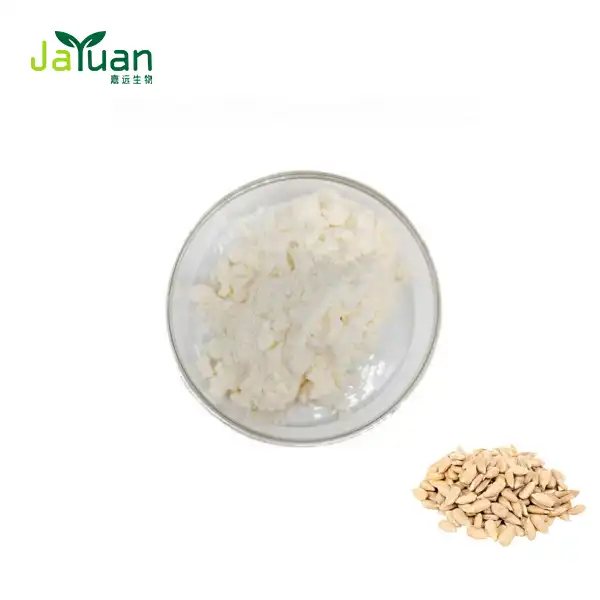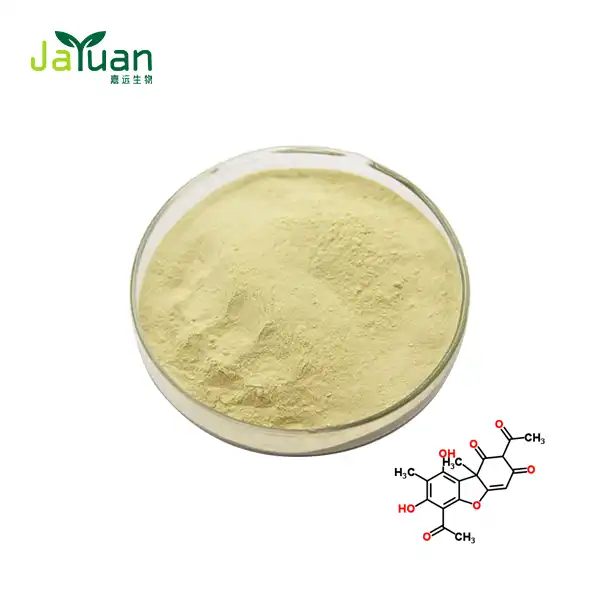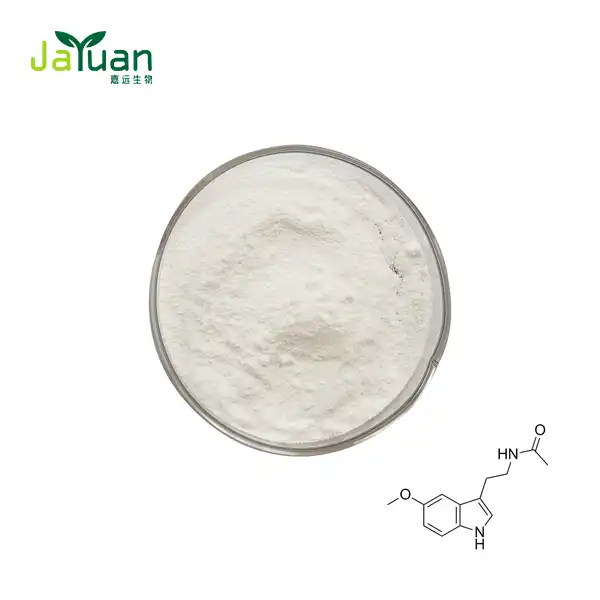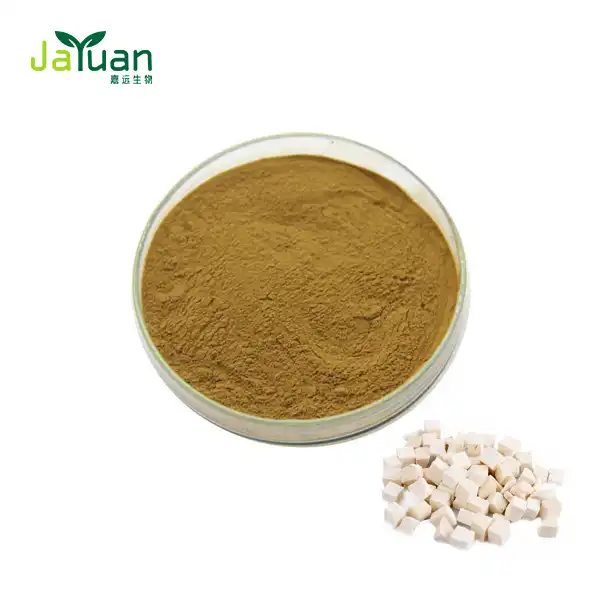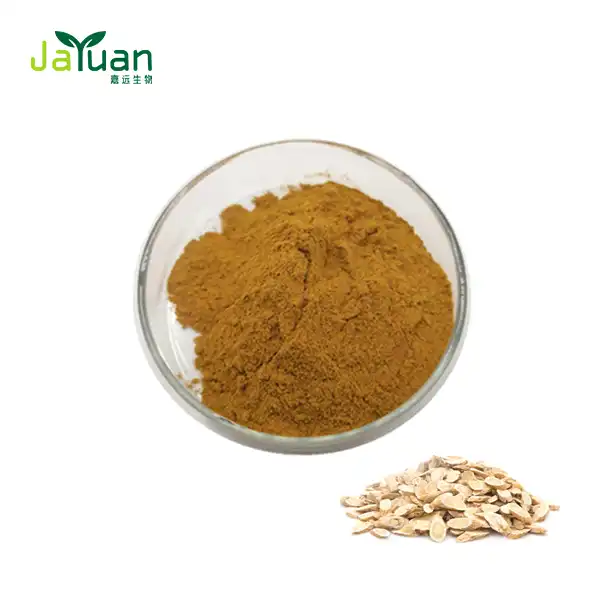What are the anti-inflammatory mechanisms of notoginseng saponins?
Inflammation is a complex biological response that plays a crucial role in our body's defense against harmful stimuli. However, when inflammation becomes chronic, it can contribute to various health issues. In recent years, natural compounds like notoginseng saponins have gained attention for their potential anti-inflammatory properties. This article explores the fascinating mechanisms behind the anti-inflammatory effects of notoginseng saponins and how they may contribute to overall health and well-being.
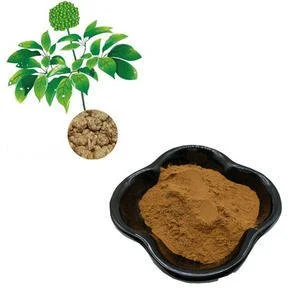
NF-κB Pathway: How Notoginseng Saponins Modulate Inflammation
Nuclear factor kappa B (NF-κB) is a protein complex that is essential for controlling the immune response to infection and inflammation. When activated, NF-κB causes the expression of several pro-inflammatory genes, which in turn produces inflammatory mediators. This is one of the main ways that notoginseng saponin powder reduces inflammation.
Notoginseng saponins have been shown to interfere with the activation and translocation of NF-κB, thereby reducing the expression of pro-inflammatory genes. This inhibitory effect on NF-κB signaling can lead to a decrease in the production of inflammatory cytokines, such as tumor necrosis factor-alpha (TNF-α) and interleukin-6 (IL-6).
The modulation of the NF-κB pathway by notoginseng saponins involves several steps:
- Inhibition of IκB kinase (IKK) activation: Notoginseng saponins may prevent the phosphorylation and activation of IKK, which is responsible for the degradation of the inhibitory protein IκB.
- Stabilization of IκB: By maintaining the stability of IκB, notoginseng saponins help keep NF-κB in an inactive state in the cytoplasm.
- Reduction of NF-κB nuclear translocation: Even if NF-κB is activated, notoginseng saponins may impede its translocation to the nucleus, where it would otherwise initiate the transcription of pro-inflammatory genes.
- Interference with DNA binding: Some studies suggest that notoginseng saponins may directly interfere with the ability of NF-κB to bind to DNA, further suppressing the inflammatory response.
By targeting the NF-κB pathway, notoginseng saponins can potentially help maintain a balanced inflammatory response in the body. This modulation of inflammation may contribute to the various health benefits associated with notoginseng supplementation.
Cytokine Regulation: The Science Behind Notoginseng's Anti-Inflammatory Effects
Cytokines are small proteins that play a crucial role in cell signaling and the regulation of immune responses. In the context of inflammation, certain cytokines can promote or suppress inflammatory processes. Notoginseng saponins have been found to exert their anti-inflammatory effects, in part, by modulating the production and activity of various cytokines.
The cytokine-regulating properties of notoginseng saponins include:
- Suppression of pro-inflammatory cytokines: Notoginseng saponins have been shown to reduce the production of pro-inflammatory cytokines such as TNF-α, IL-1β, and IL-6. These cytokines are key players in the inflammatory cascade and their suppression can help mitigate excessive inflammation.
- Enhancement of anti-inflammatory cytokines: In addition to suppressing pro-inflammatory cytokines, it may also promote the production of anti-inflammatory cytokines like IL-10. This dual action helps shift the balance towards a more anti-inflammatory state.
- Modulation of chemokine production: Chemokines are a subset of cytokines that guide the migration of immune cells to sites of inflammation. Notoginseng saponins may help regulate the production of certain chemokines, potentially reducing the infiltration of inflammatory cells into tissues.
- Interference with cytokine signaling pathways: Beyond affecting cytokine production, it may also modulate the signaling pathways activated by these cytokines. This can lead to a dampening of the inflammatory response even in the presence of pro-inflammatory cytokines.
The ability of product to regulate cytokine production and signaling contributes significantly to their anti-inflammatory potential. By influencing the delicate balance of pro- and anti-inflammatory cytokines, these compounds may help maintain a healthy inflammatory response in the body.
It's important to note that while these effects have been observed in various studies, the exact mechanisms and their relevance to human health may vary depending on factors such as dosage, duration of use, and individual physiology. As with any dietary supplement, it's advisable to consult with a healthcare professional before incorporating notoginseng saponins into your wellness routine.
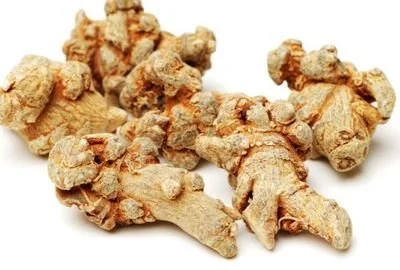
Synergistic Combinations: Pairing Notoginseng with Turmeric for Enhanced Benefits
While notoginseng saponins have demonstrated significant anti-inflammatory potential on their own, combining them with other natural compounds may lead to enhanced benefits. One particularly interesting combination is the pairing of notoginseng with turmeric, another well-known anti-inflammatory agent.
Turmeric, derived from the Curcuma longa plant, contains curcumin, a compound renowned for its potent anti-inflammatory and antioxidant properties. When combined with notoginseng saponins, the two may work synergistically to provide a more comprehensive approach to managing inflammation.
Here are some potential benefits of combining notoginseng saponins with turmeric:
- Enhanced NF-κB inhibition: Both notoginseng saponins and curcumin have been shown to inhibit the NF-κB pathway. When used together, they may provide a more robust suppression of this key inflammatory signaling cascade.
- Complementary cytokine modulation: While notoginseng saponins and curcumin both affect cytokine production, they may target different sets of cytokines or influence their production through distinct mechanisms. This complementary action could result in a more balanced regulation of the inflammatory response.
- Antioxidant synergy: Notoginseng saponins possess antioxidant properties, and curcumin is a potent antioxidant. The combination of these compounds may provide enhanced protection against oxidative stress, which is often closely linked to inflammation.
- Improved bioavailability: Some studies suggest that certain compounds in notoginseng may enhance the bioavailability of curcumin, potentially leading to improved absorption and efficacy of this beneficial turmeric compound.
The potential synergy between notoginseng saponins and turmeric highlights the importance of considering combinatorial approaches in natural health supplements. By leveraging the unique properties of multiple plant-derived compounds, it may be possible to achieve more comprehensive and effective support for maintaining a healthy inflammatory balance.
It's worth noting that while the combination of notoginseng saponins and turmeric shows promise, more research is needed to fully understand the extent of their synergistic effects and the optimal ratios for their use. As with any combination of supplements, it's crucial to consult with a healthcare professional before incorporating them into your regimen, especially if you have pre-existing health conditions or are taking medications.
In conclusion, the anti-inflammatory mechanisms of notoginseng saponins are multifaceted and complex. From modulating the NF-κB pathway to regulating cytokine production and potentially synergizing with other natural compounds like turmeric, these saponins offer intriguing possibilities for supporting a balanced inflammatory response. As research in this area continues to evolve, we may uncover even more ways in which notoginseng saponins can contribute to overall health and well-being.
Are you interested in learning more about notoginseng saponins and their potential benefits? Xi'an Jiayuan Bio-Tech is at the forefront of natural plant extract research and production. We offer high-quality notoginseng saponins powder and a range of other plant extracts to meet your needs. For more information or to discuss how our products can benefit your business, please don't hesitate to reach out to us at sales@jayuanbio.com, sales1@jayuanbio.com. Our team of experts is ready to assist you in finding the perfect solution for your health supplement ingredients.
References
1. Wang, J., et al. (2019). Anti-inflammatory effects of Panax notoginseng saponins through NF-κB pathway modulation. Journal of Ethnopharmacology, 242, 112033.
2. Liu, Y., et al. (2020). Notoginseng saponins attenuate inflammatory responses via modulation of the TLR4/MyD88/NF-κB signaling pathway. Molecular Medicine Reports, 22(3), 2211-2220.
3. Zhang, X., et al. (2018). Panax notoginseng saponins and their anti-inflammatory activities: A review. Fitoterapia, 127, 139-149.
4. Chen, S., et al. (2021). Synergistic effects of Panax notoginseng saponins and curcumin on inflammation: A systematic review. Phytomedicine, 80, 153397.
5. Li, H., et al. (2017). Comparative study on the effects of Panax notoginseng saponins and curcumin on cytokine production in macrophages. Journal of Ginseng Research, 41(4), 445-452.
6. Zhao, Y., et al. (2022). Notoginseng saponins: A comprehensive review of their anti-inflammatory mechanisms and potential applications. Biomolecules, 12(2), 254.

